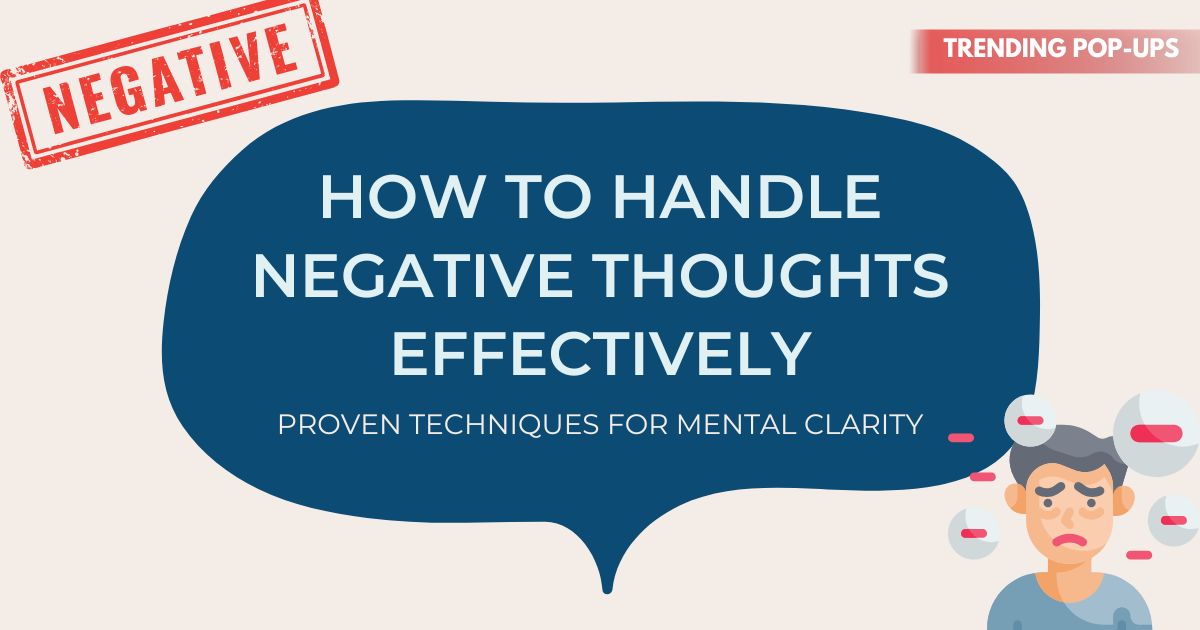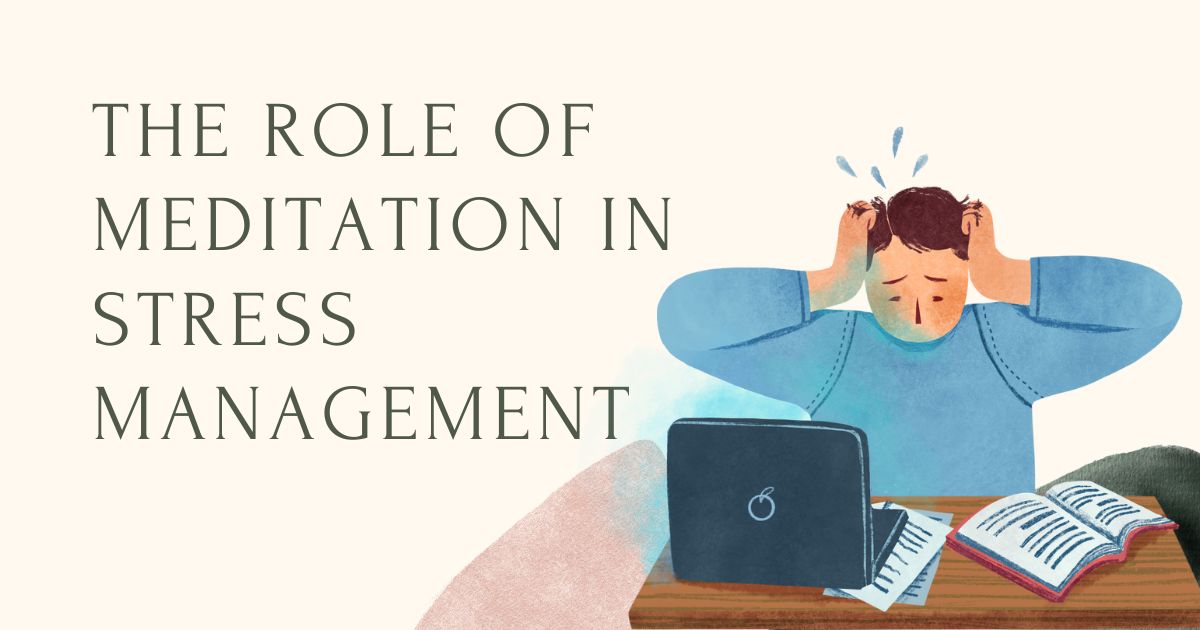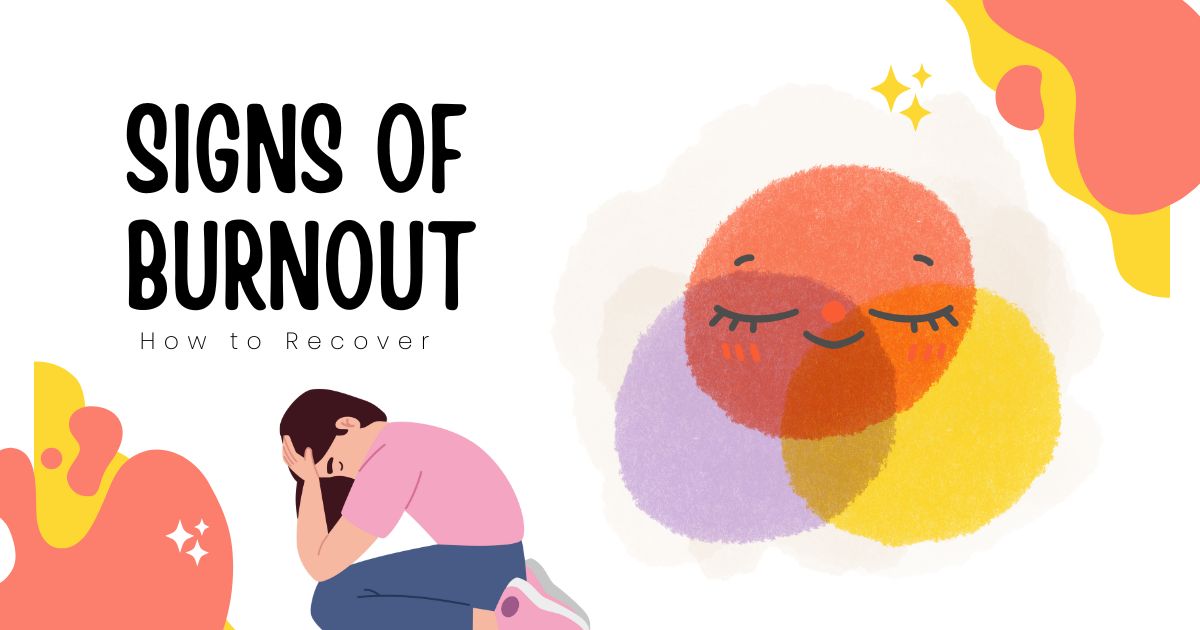Negative thoughts are a natural part of the human mind, but when they become overwhelming, they can harm mental health, relationships, and productivity. Whether it’s self-doubt, worry about the future, or dwelling on past mistakes, negative thinking can drain energy and prevent personal growth.
The good news is that you can train your mind to manage negativity and shift toward a healthier mindset. In this article, we’ll explore how to handle negative thoughts effectively with practical strategies, lifestyle tips, and proven techniques to promote positivity and inner peace.
Understanding Negative Thoughts
Negative thoughts are unwanted mental patterns that focus on pessimism, fear, or self-criticism. They often arise from stress, past experiences, or external pressures. Common types include:
-
Catastrophizing: Expecting the worst-case scenario.
-
Overgeneralization: Assuming one failure means repeated failures.
-
Self-criticism: Constantly judging yourself harshly.
-
Mind reading: Believing others are thinking negatively about you.
-
Dwelling on the past: Reliving mistakes or regrets.
Recognizing these thought patterns is the first step toward handling them effectively.
Why It’s Important to Manage Negative Thoughts
If left unchecked, negative thinking can lead to:
-
Increased stress and anxiety
-
Reduced confidence and self-worth
-
Strained relationships
-
Poor decision-making
-
Higher risk of depression
Learning how to control and reframe these thoughts is essential for mental clarity, emotional balance, and overall well-being.
How to Handle Negative Thoughts Effectively
1. Practice Mindfulness
Mindfulness helps you observe thoughts without judgment. Instead of fighting negative thoughts, acknowledge them and let them pass. Techniques include deep breathing, meditation, or simply staying present in the moment.
2. Challenge Your Thoughts
Ask yourself: Is this thought based on facts or assumptions? Questioning the accuracy of negative thinking helps reduce its power over you.
3. Reframe with Positivity
Shift your perspective by replacing negative thoughts with positive alternatives. For example, instead of “I always fail,” reframe it as “I didn’t succeed this time, but I can learn and improve.”
4. Limit Exposure to Negativity
Reduce triggers that fuel negative thoughts, such as toxic people, excessive news, or unhealthy social media use. Create a positive environment that supports growth.
5. Practice Gratitude
Writing down three things you’re grateful for each day shifts focus from problems to blessings, reducing negativity.
6. Engage in Physical Activity
Exercise releases endorphins, which improve mood and reduce stress, making it easier to handle negative thinking.
7. Use Affirmations
Positive affirmations like “I am capable” or “I choose peace” help reprogram the mind to focus on strength and resilience.
8. Journal Your Thoughts
Writing down negative thoughts provides clarity and helps identify recurring patterns. This makes it easier to address the root causes.
9. Seek Social Support
Talking to a trusted friend or therapist allows you to gain perspective and feel less isolated in your struggles.
10. Set Boundaries
Learning to say no and protecting your mental space reduces situations that may trigger negativity.
Daily Habits to Reduce Negative Thinking
-
Sleep well: Rest restores brain function and emotional balance.
-
Eat healthy foods: Nutrition impacts mood and energy levels.
-
Limit caffeine and alcohol: Both can heighten anxiety and negativity.
-
Spend time in nature: Fresh air and natural surroundings calm the mind.
-
Practice deep breathing: Reduces stress instantly.
Long-Term Benefits of Managing Negative Thoughts
When you consistently practice these techniques, you’ll notice:
-
Increased confidence and self-esteem
-
Better emotional regulation
-
Improved relationships and communication
-
Greater resilience in tough situations
-
Enhanced overall happiness and life satisfaction
Conclusion
Negative thoughts may be a part of life, but they don’t have to control you. By practicing mindfulness, reframing perspectives, and developing positive daily habits, you can learn how to handle negative thoughts effectively. It’s not about eliminating negativity entirely but about building resilience and shifting focus toward growth and positivity.
With consistency, these practices can transform your mindset, helping you live a healthier, more fulfilling life.
Also Read : Gluten-Free Diet: Who Should Follow It and Why It Matters
FAQs
1. Can negative thoughts be completely eliminated?
No, negative thoughts are natural, but they can be managed and reduced with effective techniques.
2. How long does it take to change negative thinking patterns?
With daily practice, noticeable improvements can be seen within weeks to months.
3. Is meditation effective for controlling negative thoughts?
Yes, meditation and mindfulness are proven methods to calm the mind and reduce negativity.
4. Should I seek professional help for negative thoughts?
If negative thinking leads to anxiety, depression, or impacts daily life, professional guidance is highly recommended.
5. Can journaling really help with negative thoughts?
Yes, journaling allows you to express emotions, track thought patterns, and gain perspective.



